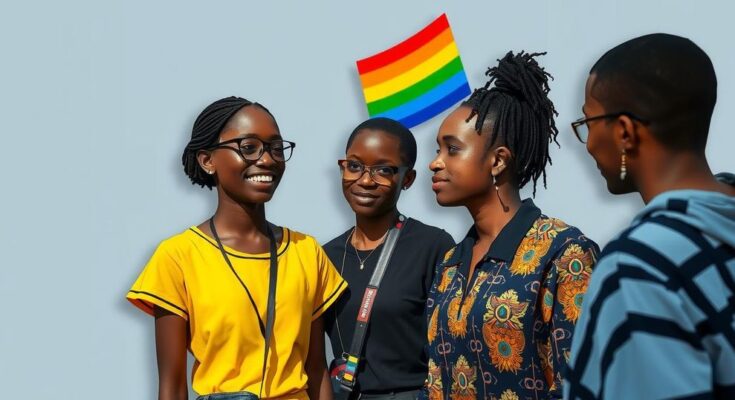A side event during the African Commission’s 81st Session in Banjul focused on the struggles of human rights defenders in Côte d’Ivoire amid new restrictive laws. Key issues included undue limitations on civil society operations, intense scrutiny of financial activities, and harrowing experiences of LGBT defenders facing violence and discrimination. The event highlighted the need for advocacy and legal action against these oppressive measures.
At the 81st Ordinary Session of the African Commission on Human and Peoples’ Rights in Banjul, The Gambia, a significant side event was held, focusing on the plight of human rights defenders in Côte d’Ivoire. Organized by the International Service for Human Rights (ISHR) and various human rights organizations, the discussion on October 18, 2024, highlighted disturbing restrictions on freedom of assembly, association, and the threats faced particularly by LGBT defenders amidst a tightening civic space. Recent legislation enacted by the Ivorian government, an ordinance limiting the operations of civil society organizations (CSOs), has been a focal point of concern. The panel critically examined how this law could halt CSOs from functioning until accredited, the broad criteria for dissolving organizations, and the discretionary authority granted to the executive branch to make such decisions. The discussion underscored the disconnect between these governmental measures and established international standards for protecting freedom of expression. Participants lamented that despite laws meant to protect human rights defenders since 2014, the actual practice remains fraught with obstruction and overreach. The panel also scrutinized the heavy financial reporting demands placed on CSOs, which impose unnecessary restrictions on their administrative processes. These obligations require exhaustive audits and the disclosure of all contributions, extending beyond those receiving government grants, and further entrenching state interference. Heartfelt testimonies from LGBT defenders illuminated the terrifying realities they endure, including hostage situations and death threats. The panel acknowledged that the societal stigma surrounding LGBT issues in Côte d’Ivoire severely undermines the operational capacity of organizations advocating for their rights. As the event drew to a close, lively discussions ensued regarding the discrepancies between current human rights measures and the newly imposed ordinance. Attendees examined potential pathways for legal challenges to the ordinance and highlighted the urgent need for investigations into escalating homophobic violence. In a follow-up plenary session, the Chairperson of the African Commission addressed the pressing situation of human rights defenders in Côte d’Ivoire, particularly focusing on the vulnerabilities faced by the LGBT community. He emphasized that unyielding public support is crucial for securing human rights for everyone, unclouded by biases or double standards.
The state of human rights in Côte d’Ivoire, especially for LGBT defenders, remains precarious, exacerbated by restrictive government regulations. The recent ordinance governing civil society organizations has raised alarm, reflecting a trend of shrinking civic space and increased state control over human rights advocacy. This backdrop of repression has necessitated urgent discussions among various stakeholders to address these challenges and promote a conducive environment for human rights work.
The side event in Banjul served as an essential platform to voice concerns regarding the dire restrictions faced by human rights defenders in Côte d’Ivoire, especially the challenges confronting LGBT organizations. The need for collective advocacy and public support was underscored, emphasizing the critical balance between government regulations and the right to free expression, assembly, and association. Ultimately, protecting these rights remains imperative for ensuring the safety and effectiveness of civil society.
Original Source: ishr.ch



